And Now…A Special Word From Our Veterans
Adelphi Quill Award Winner – 2nd place, Best Feature Article (2018).
Photo by Elizabeth Niemiec
9/11 Memorial by Medford Train Station.
Liberty. Democracy. Opportunity. Equality. Freedom. America is all of these words and more. However, without our veterans, our country wouldn’t be the way it is today. Because of our military, we can feel safe at home, we can have the opportunities to succeed, and we can live free under the American flag. While schools, federal government offices, banks, and other services are closed on Friday, Veterans Day is actually on Saturday, November 11th, 2017. On this day, Americans take the time to thank and recognize all of those who have served in uniform during both wartime and peacetime.
It’s important that veterans are recognized for their service in the military. Although today, the military consists of volunteers, in many cases, Americans were drafted into wars that they might not have gone into if it was their choice. Dr. Randy Rusielewicz, principal of Patchogue-Medford High School, stated, “Less than one percent of our country’s population is in the military, but these men and women protect one hundred percent of the freedoms and values that we have as a country.” With over 323 million people living in the United States, those in uniform have one of the biggest and most important jobs in America: protecting the freedom of everyone. They choose to do this at the cost of many sacrifices such as leaving their families, leaving their homes, and sometimes, their lives. Patchogue-Medford High School has many students who go into the army every year, and our school has an emphasis on those who have served. After renaming the campus after Navy Seal Michael P. Murphy and expanding the Hall of Heroes, the school continues to recognize those who have served.
Suffolk County has the largest population of veterans in New York and one of the largest populations in the country. In the Patchogue-Medford community, there are many veterans residing who are both recognized and not recognized for their service. Four veterans in the Patchogue-Medford area, Dave Rogers, Harold O’Neill, Joseph Acierno, and Peter Palamidis, were all able to share their experiences as a veteran in celebration of Veteran’s Day, 2017.
Americans enlist in the army for various different reasons. Rogers, a fourteen year US Army veteran who served in the Gulf War, Desert Storm, Somalia, Bosnia, and was a first responder at the World Trade Center during 9/11, enlisted because he didn’t have money for college. “I left home at 15 and I was living on the streets, getting through high school,” he said, “I saw some army movies when I was younger, ones where you would see army rangers flying and jumping out of helicopters. I said to myself, ‘When I join the army, that’s what I want to do!’” Acierno, an Afghanistan US Army veteran, enlisted in the army to follow a legacy. “I joined because my grandfather was in the Army, and I always looked up to him,” he said, “When I was 12 years old, 9/11 happened. I had friends whose families were affected, and I wanted to serve and do my part. There wasn’t too much thought process behind me joining the Army, I just knew I wanted to be an Infantryman.”
During the time periods where the draft existed, the draft was also a big motivator for Americans to enlist. Palamidis, a Patchogue-Medford graduate, Purple Heart recipient, and Vietnam veteran, decided to enlist in the army because he knew that eventually, it would be his fate. “I thought I was wasting my time and I knew the draft was going to come. I thought, ‘Why prolong the agony?’ So I went to the recruiters right down here in Patchogue on Main St, and I told them I’d like to be drafted,” he recalled, “I first signed up for the Navy but the waiting list was over a year, so I knew I was just wasting my time. So I went into the army. I was a Specialist, 4th Class.” O’Neill, a 95 year old World War II veteran and Army Major, shared that he was actually deferred after registering for the draft as a teenager. “When the war broke out, I was put into the Civilian Signal Corp. I was deferred; I could not be drafted into the army or volunteer for any branch of the military. I could not leave the Civilian Signal Corp without their permission. I was working at a telephone company. They sent a thousand young men who were deferred on the east coast or more, to enlarge the telephone central offices of key cities’ military bases. They sent me to Washington DC where I worked 12 hours a day, 6 days a week,” he said, “Eventually, I was released into the army and drafted, where I took part in combat in Normandy. I was also a correspondent for the 83rd division newsletter.” The articles that O’Neill wrote were often sent back to his family and saved, later to be published in a book, Military Memories of World War Two, thanks to O’Neill’s daughters.
Many new experiences came with being stationed in a new place. While the majority of combat experiences veterans don’t wish to remember, Palamidis shared a memory from his time in Vietnam. The Purple Heart recipient was wounded in a firefight and after being released from the hospital, he returned for two weeks after catching Malaria. Unfortunately, Palamidis was at the 6th Convalescent Hospital at Cam Ranh Bay on August 11th, 1969, when it was overrun by the enemy. “One o’clock in the morning, I was in my bed and the enemy came in and blew everything up, and came in my ward. I was under my bed hiding, the enemy’s zapper squad was standing at the end of my bed, and I could see his feet. He was shooting his AK47; I could see the round hitting the floor; I didn’t think I was going to make it out of that one,” he remembered. The next morning, news reporters showed the damage done to the hospital, interviewing many of the men who were lucky to be alive as many of the men were killed or wounded in the attack.
Being stationed in a new and foreign place also brought a new admiration for the scenery in these Old World countries. Acierno recalled a memory of the night before his 23rd birthday. “I remember it was raining, and the rain was coming down horizontally because of the wind. I felt like I was in this ancient place, and I was. The night sky was quite amazing as well. There was almost zero light pollution in Afghanistan, you could see galaxies, and during full moons you could see everything,” he said, “The mountains were also beautiful. While flying through the valleys, you would do something called mapping the earth, where the pilot would fly low and follow the contours of the terrain. Occasionally you would catch an updraft of wind below the Blackhawk helicopter, you would go weightless; it was pretty cool.” Rogers, who was stationed in Egypt, shared a similar memory of the times he spent there. “We had some downtime, we were relaxing, and the colonel said, ‘I have to take my helicopter up for my flight hours, do you want to come with me?’ And I was like, ‘Sure, I’ll go with you, no problem.’ And next thing I know, we’re flying over the pyramids,” he said, “The colonel lands down by the Nile River and a bunch of us get out and sit there. We’re eating our lunch by the Nile River.”
O’Neill shared a memory from when he was in Normandy. Because he worked for a telephone company in the Signal Corps, O’Neill ran wires to all of the holes dug in the headquarters for the 83rd division, also controlling the switchboard. One morning, O’Neill noticed men passing his hole after getting sent out with two other men and a lieutenant to push the enemy back; some men were wounded, some were not. “The soldiers retreating picked up the phones saying ‘Call Brooklyn’ and ‘Give me my mother,’ and I said, ‘This is a division switchboard, get off the line!’ One of the phones activated my switchboard and a man said, ‘I’m a Major with a company that just got pushed back by the Germans. They’re two fields away.’ He wished to connect with the division headquarters. O’Neill eventually connected him to the beach headquarters and the Major was given 12 inch guns from the General. They fired in intervals all night, according to O’Neill. “The counter attack was stopped. The lieutenant got a silver medal for heroism, the sergeant got a bronze medal for heroism., and I got nothing. But I was quite happy to be alive. I could’ve been shot or captured.”
Acierno, who has spent some time in the majority of the states, Kyrgyzstan, Romania, Germany, Puerto Rico, and the Mojave Desert alongside Afghanistan, shared another memory from his time in training. “We did an air assault mission in Puerto Rico for training,” he said, “The Black Hawk dropped us off and we hiked up this small mountain. As soon as the sun set, thousands of spiders started falling down from the trees. It’s the only time I’ve seen battle hardened troops freak out, it was an ‘oh, hell no’ moment.” Picturing battle hardened troops lose it over spiders makes anyone chuckle.
Rogers was also able to tell a particularly humorous story. The Gulf War veteran grew up in Manhattan, never once learning how to drive or shoot a gun. “We were going out to the rifle range and the Sergeant says to me, grab that truck and get it up the hill over there. The truck’s full of guys and it’s a huge, 5 ton stick shift truck. I tell him, ‘I don’t know how to drive,’ he says, ‘You’ll be fine! Just step on it and clutch it!’ The guys must’ve gotten sick in the back,” he laughed, “Once I get to the top of the hill, Sergeant says, ‘Now you know how to drive.’ Then we go out to the rifle range; we’re shooting and I’m an artist, so I have a good eye for hitting every target. Sargent goes, ‘where’re you from?’ I go, ‘New York,’ he goes, ‘Must be in those gangs up, right?’ At the time, I was 5’6, I weighed 120 lbs. I was this tiny little thing, I was like, ‘Yeah, totally, I’m in a gang.”
Of course, the army’s not all about going to war and hurting people; there’s a big part of helping people. The army puts out fires, helps during hurricanes, helps those in need. These memories are engraved into veterans’ minds just as much as memories of combat are. “You never forget those things; you never forget the people that you help,” Rogers said.
Whether one spends a year in the service or forty, these experiences within the military have a long-lasting impact on a veteran’s lives. Most people are aware that a large number of veterans suffer from Post-Traumatic Stress Disorder and other psychological disorders, but not all effects are negative. This experience can give veterans problem-solving skills among many other things. “It gave me a renewed feeling of life itself. I found out that this is the greatest country in the world compared to other places that I’ve been in. It shaped me and grew me up into a man,” he expressed, “It helps you with your challenges later on in life. Because nothing is more worse than being in combat and other experiences that you’ll have in the service.” Acierno also gained a greater appreciation for his country after his service in Afghanistan. “It taught me to appreciate things more; the fact that we live in a country with clean drinking water is something everyone takes for granted,” he said, “I learned it feels better to help people then it does to make money.”
In addition to problem-solving skills, Rogers explained that he learned a lot about discipline. “One of the things that I learned was to make my bed in the morning. It seems like a simple task to people but the reality behind it is when you get up and the first thing you do is make your bed, before your day has even started, you’ve accomplished something,” he said, “Those are the kinds of things that you pick up in the military. It carries with you.”
O’Neill’s services in the military made him want to stay in the service as long as he could get a commission. He retired in 1975 and jokes that because a retired officer is always subject to recall, when WWIII breaks out, maybe they’ll call him back. While he served in World War II, however, he explained how his cigarettes made him rich. “Every two weeks I got a carton of cigarettes payed for by somewhere in the military. When I was freezing in the Battle of the Bulge because I didn’t have mittens, I gave a couple cigarettes to a German prisoner and he gave me his fur lined gloves,” he said, “For a cigarette, a French woman would do my laundry. If my Jeep had a flat, a couple of cigarettes would get a German or French mechanic to replace and patch the tube and put the wheel back on the Jeep. I used my cigarettes very carefully, and it really paid off. So, you learn how to survive.”
After their services, each of the veterans decided to seek further education and went on to do different careers. Using his GI Bill, Acierno is currently attending school for business management. “I plan on starting my own business with my friend and fellow Veteran Sean,” he said. “We hope to empower, inspire, and support veterans through a digital platform. We are in the beginning stages right now.” O’Neill also used his GI Bill to go to college. He attended Hunter College part time, realizing that it was actually a girl’s college after a year, and was later accepted to NYU and Columbia, deciding to attend NYU. “I gave up working for a living and started up teaching for a living,” he said, “I taught economics, some history, and government mostly at community colleges.”
Palamidis attended Suffolk County Community College for two years after returning from his service where he got his associates degree. He worked at Brookhaven National Laboratory as an air conditioner refrigeration operating engineer and retired after forty years, six years ago. “I later went into management and was a maintenance coordinator,” he said. On the other hand, after breaking his neck, Rogers wasn’t sure what he was going to do after the military. “I slowly started to remember that I wanted to get back to my art, so that’s what I’ve been doing,” Rogers said. Since leaving the army, Rogers has worked with the Arts on Terry Street in Patchogue, the Chamber, and the local VFW. In fact, Rogers is hosting a Veterans Art Exhibit in the Artspace in Patchogue from November 5th to November 24th. The opening reception is from 3 PM to 6 PM on November 18th. Both Rogers and Acierno will have art featured in the exhibit.
Surprisingly enough, communities haven’t always been supportive of their veterans. Vietnam and Korean War veterans were pushed aside and forgotten about for a very long time because of how unpopular the wars were. A lot of them are still struggling from that, trying to receive their benefits. “When I came home from Vietnam, we weren’t shown too much respect at all,” Palamidis expressed, “Today, going back to the last ten years, I get a lot of respect. Most of that respect is going from the younger people- the teenagers. They’ll hold the door open, thank me for my service, and when I go to coffee shops, they’ll say, ‘sir, the coffee’s on me,’ and I’m taken back because we never got that when we came home. I think because of the way the Vietnam veterans were treated, the community said, this will never happen again.”
In instances like this, it’s important to realize that our veterans aren’t our government. Whether one agrees with a war or not, supports a government official or not, stands for the anthem or not, one has to separate their political ideologies from our military. These men and women are American citizens like all of us, risking their lives for our freedom. Our veterans are here to support us; they don’t have a say in the war. They just serve. Protest the government, but don’t take frustration out on veterans. It’s great that Vietnam veterans are getting the support years later, but they deserved it as soon as they came home.
While many of the veterans receive support today, and more support than ever, communities still have a long way to go in order to connect with their veterans. Some people don’t know what a veteran means which prohibits support in various communities. “For every military job, there is a civilian job,” Rogers explained, “A veteran could be your doctor, they could be your lawyer, your accountant, they could be your school bus driver. Anyone in your life could be a veteran. We don’t always put it in people’s faces. For some of us, it’s private. But we know who we are and we know what we’ve done.”
Acierno added that while it’s great that communities want to help veterans, veterans want to help their community too. “I can’t speak for everyone, but Vets want to help, they want to be a part of the community and serve a larger picture,” he said, “I think if communities got together and instead of saying how can we help Veterans, they ask how we can empower them. I think if communities did that, a vast change could happen, one that would benefit us both.” Veterans are grateful for the services provided to them. When the Patchogue Home Depot came in to refurbish the VFW hall in the past weeks, veterans were more than appreciative. They appreciate when people thank them and all of the services and benefits they receive as veterans. These services are essential for veterans to get back on their feet when they return home. But veterans also want to serve their communities and schools. They want to give back to the places that have helped them succeed. They want to go and talk to the schools, give blood drives, do scholarship programs, and let people know what’s out there.“The Patchogue-Medford Library has helped me out a lot,” Acierno added, “For around six months, myself and Sean, with the help of the library, ran monthly meetings for veterans.” They are currently in the process of changing this service to a digital platform.
O’Neill touched upon the lack of membership within the American Legion posts, the VFW, and various other veteran organizations. “They’re all dying due to lack of membership. We tried to give a dance a few years ago, telling potential members to bring their sweetheart, and it was all free. Only six couples showed up and only one joined the post,” he said. Rogers mentioned that because most of their members are older guys, they’re not on social media. “So, that’s one of the things we’re working on is trying to show people how much we’re out there and how much we love the community.” It’s unfortunate, but the VFW and other organizations haven’t stopped getting involved with the community. “We are hoping it gets better. We have a legislative group with the VFW that fights for the rights of veterans. In the fact five-ten years, there’s been a push to fight for women, gay, lesbian, and transgender veterans. It’s important,” Rogers added, “It’s great that we have something like Veteran’s Day to remind us that it’s not just men.”
Currently, the Patchogue community is starting a Lights on Veterans program on Main Street and South Ocean Avenue. Many veterans are getting stones below light posts with their names on it, including both O’Neill and Palamidis. This program is becoming very popular with the veterans. Additionally, the Veteran’s Day ceremony at the Four Corners in Patchogue means a lot to the veterans of the community. “We celebrate the eleventh month, the eleventh day, and the eleventh hour on Main Street,” Palamidis explained, “We celebrate the veterans and their sacrifices and it brings awareness to all of those who support it.” Rogers added that the VFW will be out on the Four Corners with all of the other veterans. O’Neill mentioned that he will also be at the Patchogue ceremonies for Veteran’s Day if the weather permits. “I still wear a uniform thirty years out of date and it still fits. I still march in all of the parades.”
Veteran’s Day is a reminder to thank those who have served and to make sure that veterans get the services they need. Not only should we honor and support them, but we should make a greater effort to include them in schools and communities. So many veterans are unaware of the services available to them and are unaware where to go. “Take advantage of the community and your school,” Acierno stressed, “Use all of the resources available to you. If you really want to thank Veterans, just try and get involved with something positive. Learn something new and offer help to someone. If you feel like you can change the world, then you can.”
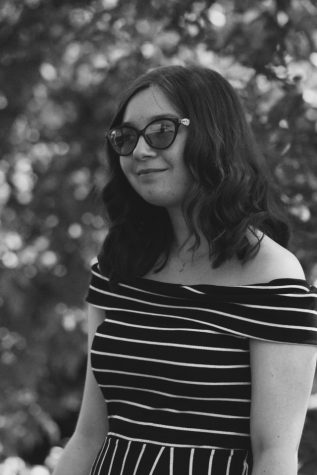
Adelphi Quill Award Winner - 3rd Place, Most Outstanding Reporter (2018)
Grade 12
"You can never be overdressed or overeducated." - Oscar Wilde
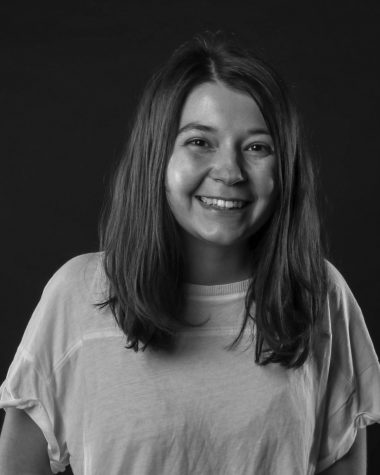
Grade 12
"What a wonderful thought it is that some of the best days of our lives haven't happened yet." - Anne Frank

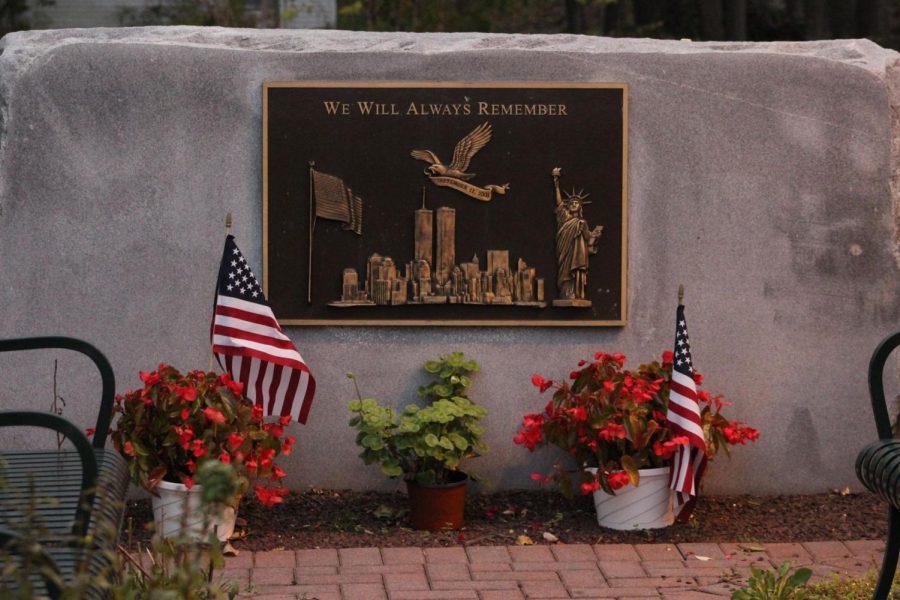
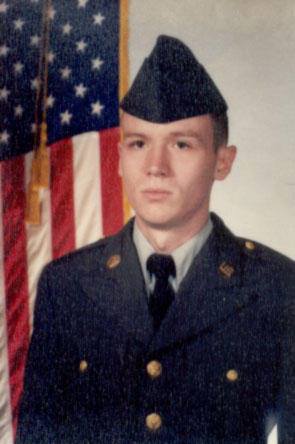
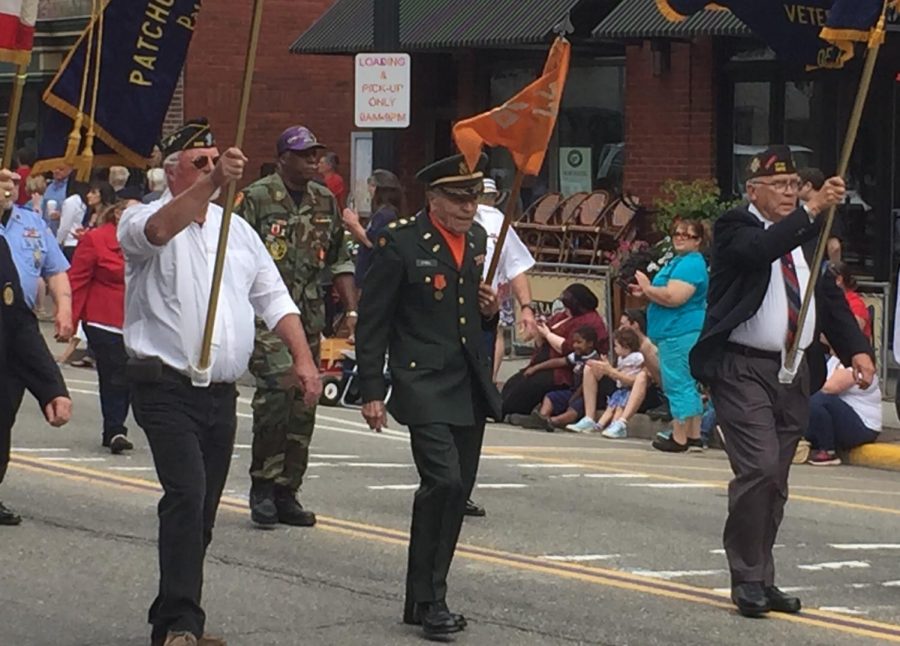
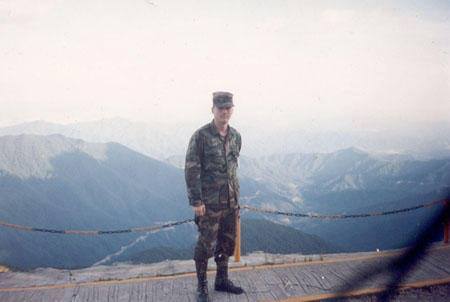
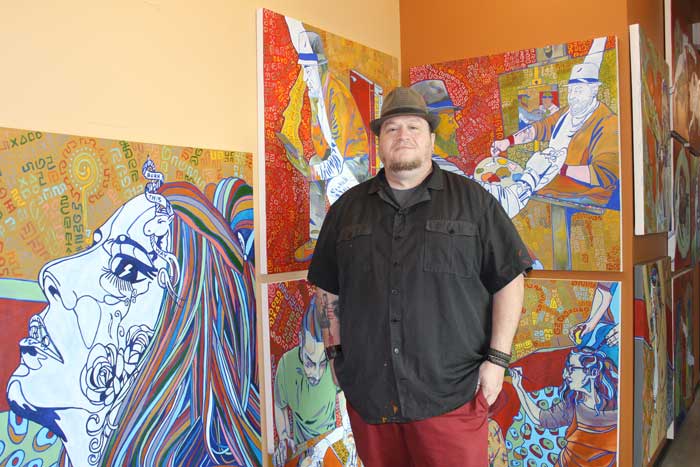
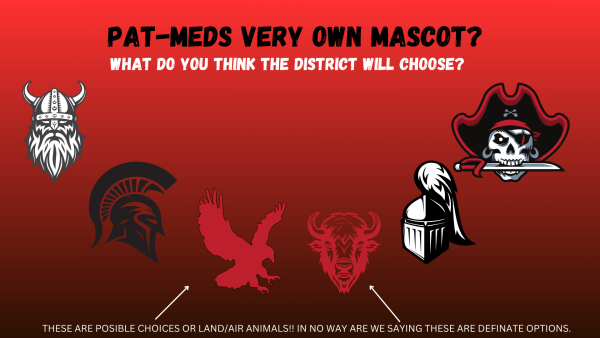
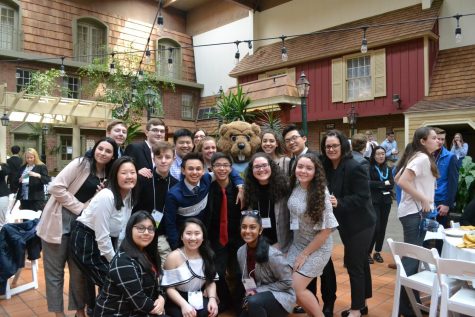
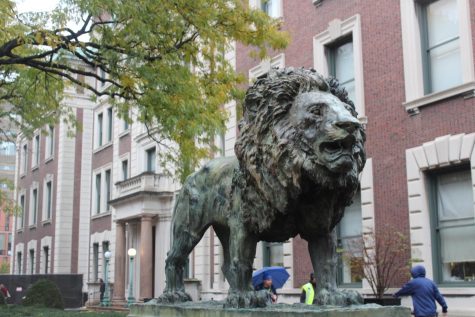
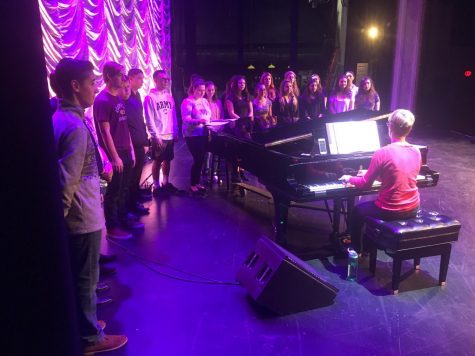
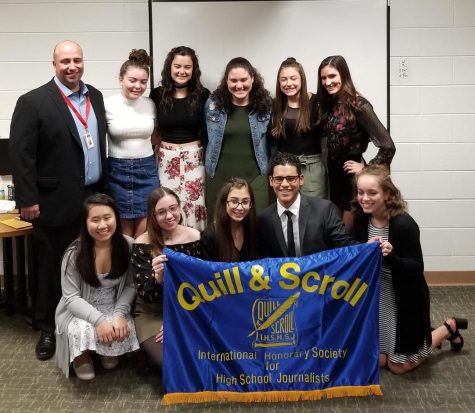
Sam • Nov 10, 2017 at 12:49 pm
Great article, Nicole! Love the research and interviews you put into your work.
And a special thank you to the veterens!